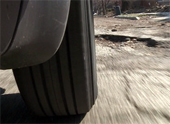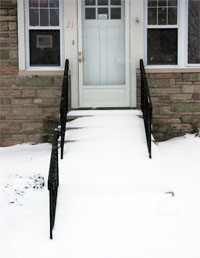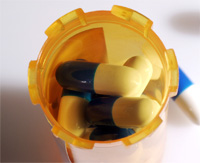Posts Tagged ‘Massachusetts’
What Massachusetts Consumers Need to Know about Health Club Contracts

If you exercise at a health club, you may not be aware that Massachusetts law protects you in many ways from unlawful club contracts. But many local health clubs – yours may be included – are regularly violating the law.
Health clubs are serving larger numbers than in the past. Over 50.2 million Americans now hold gym memberships, a 10 percent increase over the past three years, according to the International Health, Racquet & Sportsclub Association.
The industry has been known to make it challenging for members to cancel or put their memberships on hold. Sometimes, after you sign the cancellation agreement, they require you to pay until month’s end, then another full “last month.” In addition to monthly membership fees, many are also now adding new fees for “annual” memberships and equipment maintenance. Some are even charging cancellation fees up to $200. This is still legal in Massachusetts, though not at all consumer friendly.
But did you notice the fees clearly posted the last time you visited your gym? If not, your gym is violating the law. The Massachusetts Office of Consumer Affairs and Business Regulation recently inspected 15 local health clubs and found none were displaying fees or informing consumers of their right to cancel within three days, according to WBZ-TV. The office is referring the results to the state Attorney General’s office.
Health clubs cannot ask a member to sign a waiver of liability but, surprisingly, many still do. While waivers of liability, also known as releases, are generally enforceable in Massachusetts, G.L. c. 93, Sec. 80 specifically states, “No contract for health club services may contain any provisions whereby the buyer agrees not to assert against the seller or any assignee or transferee of the health club services contract any claim or defense arising out of the health club services contract or the buyer’s activities at the health club.”
This means gyms have a duty to properly maintain their premises and equipment and make sure they are being used in a safe manner, according to the manufacturer’s guidelines. If they do not, and they were negligent, they may be responsible for your damages. If you have been injured in a Massachusetts gym, the court should find the liability waiver void. Over the years, our injury lawyers have successfully challenged these agreements.
Gyms also cannot ask members to sign up for terms longer than 36 months or require that members agree to financing that lasts longer than one month beyond the membership period. Members cannot be required to agree to monthly automatic withdrawals from a bank account.
If you are joining a gym, the best thing you can do is read the fine print on your member agreement before signing. Research the organization online through your local Better Business Bureau website.
Consumer remedies for health club violations are limited. No health club will be permitted by the courts to enforce an illegal contract. A consumer may bring claims under the Massachusetts Consumer Protection Act, G.L. c. 93A, but damages will usually be nominal, although attorneys’ fees would be available.
Recent Court Ruling
The possibility of class actions was virtually eliminated by the recent ruling by the Supreme Judicial Court in Tyler v. Michaels Stores, Inc., 464 Mass. 492 (2013). An invasion of a consumer’s rights may be a violation of G.L. c. 93A, but unless the consumer has suffered a separate, identifiable harm arising from the violation, there will be no remedy. This case put a disappointing crimp into collective consumer action to prevent violations of the Consumer Protection Act, leaving overworked state officials to take up the slack.
What to Know About Potholes and Car Accidents

In Massachusetts, we are making the long-awaited transition from winter to spring.
For drivers, that means trading in the challenge of navigating snow-packed roads for dodging potholes.
While potholes often start as small pavement cracks, they can expand quickly if left unrepaired. Hitting even a small pothole can cause hundreds or thousands of dollars in damage to your car as well as serious injury if the driver loses control of the vehicle. Accidents often happen when private property owners and government entities fail to quickly repair roads or set up signage alerting drivers to roadway defects. The law requires all persons to maintain roadways, driveways and sidewalks in a reasonably safe manner. But it also allows a reasonable amount of time to discover and repair the defect.
Around Boston, some communities report hundreds of pot hole car accidents and incidents each year. The city of Boston is trying a new approach to hasten repairs by developing a smart phone app called Street Bump which allows drivers to send the city alerts about defective roadways which need to be fixed.
If Your Car is Damaged by a Roadway Defect
If your car is damaged or you are injured because of a roadway defect,
you can expect your auto insurance collision coverage will cover the damage,
but you will be subject to your deductible, which is often $500 or more. You may also be entitled to other compensation depending on where your accident happened.
It is important to consult an attorney promptly if you are injured in order to protect all of your rights. Here are a few points to keep in mind:
Private Property. Commercial property owners invite the public onto their property for business and have a responsibility to maintain their premises,
including parking lots and driveways, in a reasonably safe manner. If the damage or injury is caused by the negligence of the property owner, then the owner’s liability insurance should cover the losses. The same rule applies to a private landowner; there is a duty to maintain driveways, parking areas, and walkways in a reasonably safe manner for all lawful visitors.
Roads and Highways. Under M.G.L. c. 84, Section 15, cities and towns must properly maintain their public ways. If a community fails to do so and had reasonable notice of the defect, a person injured in an accident on a local road may seek up to $5,000. The municipality must have known about the defect or should have learned of the defect in the exercise of due care and diligence. Gregorie v. Lowell, 253 Mass. 119 (1925). Perfection in road maintenance is not required. Zacherer v. Wakefield, 291 Mass. 90 (1935).
The city or town must receive written notice of the defect within 30 days. Proper written notice is an absolute requirement. In addition, there is an iron-clad $5,000 cap on damages. Unfortunately, any negligence on the part of the driver will be a complete bar to recovery; the rule of comparative negligence does not apply.
In Summary
In summary, potholes are a way of life in Massachusetts. If you have the misfortune of suffering a loss due to a pothole on a public way, there is little likelihood of obtaining relief from any public entity.
Vaginal Mesh Case Results in $11.1 Million Award
In the first lawsuit associated with transvaginal mesh implants, a New Jersey jury has ordered Johnson & Johnson to pay $11.1 million to a South Dakota woman who suffered injuries.
Johnson & Johnson and its Ethicon division face 1,800 lawsuits in New Jersey over injuries involving surgical mesh products, which are used to treat pelvic organ prolapse and stress urinary incontinence. Last week, the plaintiff received $7.76 million in punitive damages and $3.35 million in other compensation in Atlantic City Superior Court.
The woman, who filed her lawsuit in 2008, alleged Johnson & Johnson failed to adequately warn her doctor of potential dangers from the vaginal mesh implants. It alleged the company was liable for defective design, manufacture and warnings and instructions.
In Massachusetts and other states, the law allows a consumer to bring a claim against a company which manufactures a defective product that causes them injury. A company has a responsibility to protect consumers from defective design, manufacturer error and to warn the consumer about possible harm. Companies and professionals involved in distribution and sale can also be held liable if they act negligently. There is a statute of limitation restricting how long someone can file a claim.
Surgical mesh is a Class II medical device regulated by the Food and Drug Administration (FDA). It has been used to treat pelvic organ prolapse and stress urinary incontinence (SUI) since the 1990s. In 1996, the FDA approved it as a treatment for SUI. In 2002, it was approved to treat pelvic organ prolapse.
In 2005, Johnson & Johnson introduced its Gynecare Prolift surgical implant, the product which was used by the plaintiff. It was one of several implants on the market, along with others by Johnson & Johnson and other manufacturers such as Boston Scientific and American Medical Systems. Johnson & Johnson discontinued its vaginal mesh implants in 2012 after reports of women suffering injuries and an FDA warning.
The FDA first issued a notification about surgical mesh implants in 2008 and upgraded its warning in 2011, saying research showed approximately 10 percent of women who had received transvaginal mesh surgery experienced mesh erosion within a year. Other complications included pain, infection, bleeding, organ perforation, urinary problems and neurovascular muscular problems. Many women suffered emotional problems.
Treatment of a second surgery or intensive medical care does not always alleviate the symptoms.
Related: Jury awards woman $7.76 million punitive damages for J&J mesh, Reuters.
Read More
Massachusetts Snow Storm Safety Tips
 In a few hours, a historic snowstorm is forecast to begin, blanketing Boston with 18 inches in many areas and 24 to 32 inches in some regions. Gov. Deval Patrick has urged the public to stay home, and directed non-essential state employees not to report to work. Many schools and offices have closed in response. The MBTA will close at 3:30 this afternoon and may remain shut down through the weekend.
In a few hours, a historic snowstorm is forecast to begin, blanketing Boston with 18 inches in many areas and 24 to 32 inches in some regions. Gov. Deval Patrick has urged the public to stay home, and directed non-essential state employees not to report to work. Many schools and offices have closed in response. The MBTA will close at 3:30 this afternoon and may remain shut down through the weekend.
With a few more hours, here are some tips to prepare yourself:
Have a Plan to Stay in Contact. Whether you live at home with your family or in an apartment on your own, have a plan to communicate with your relatives, landlord and others. Gather phone numbers for snow plow companies, neighbors and local police and fire departments.
Check Your Community Website. Your city or town should post emergency information for residents to follow during the storm, including plans for clearing snow, snow storm accidents and emergency notifications.
Keep in Touch Electronically. Charge your cell phone now and monitor news on TV and the Internet. Another source of information is to dial 2-1-1, the state’s telephone information call center during times of emergency. You can also sign up for electronic alerts from the state on your phone by clicking here.
Social Media. If you are on Facebook, you can follow MEMA, the Massachusetts Emergency Management Agency by visiting its page. If you use Twitter, the hashtag for storm updates is #MAStorm.
Gas Up. The lines at the pump may be long, but if you can, fill your car with gasoline. This will give you a way to charge your cell phone if your home loses power.
Food and Supplies. Make sure you have enough food and supplies to pass the weekend, including bottled water and flashlights. Also make sure you have any medications you may need.
Power Loss. We may lose power so set your appliances and gather supplies accordingly. Set your refrigerator to the coldest setting and have a cooler ready, so you can keep it shut as much as possible during the storm. Food can stay cold in a full refrigerator for up to 24 hours and in a full-packed freezer for 48 hours. Have non-perishable food on hand as well, such as granola bars.
Turn Off TVs and Other Appliances. If we lose power, unplug sensitive electronic equipment such as TVs, microwave ovens and computers. These can cause irregularities when power is restored. Leave a light on so you know power is restored.
Plan for a Heating Loss. Gather blankets and seal off unused rooms by stuffing towels in the space under the doors. At night, cover windows with extra blankets and sheets. Make sure you regularly eat.
Freezing Pipes. If pipes freeze, remove insulation, turn on all faucets and pour hot water over the pipes. With caution, you can also use a hand-held hair dryer on the pipes.
Clearing Snow. Keep up with clearing snow as much as you can in the early hours of the storm and after the storm, follow directions from state and local officials for clearing it from areas such as sidewalks.
Clear Snow from Furnace Pipe. Throughout the storm, make sure your furnace exhaust vents remains clear of snow to avoid a build-up of carbon monoxide in your home. This is essential even when you cannot clear your driveway and other areas because it could result in poisoning.
Related:
Winter Power Outage Safety Tips, Massachusetts Emergency Management Agency.
Read More
Bus Accident Injures More Than 30 Students on Boston Overpass
State Police continue their investigation into last weekend’s bus accident on Soldiers Field Road in Allston, which injured more than 30 passengers.
The Calvary Coach bus, which was carrying approximately 40 students and chaperones from the Philadelphia area, was returning to Pennsylvania Saturday night when the crash occurred. The vehicle reportedly struck the Western Avenue bridge on the road which leads to the Mass Turnpike.
The Boston Fire Department released photos on Twitter showing firefighters standing on the bus and ladders, extricating passengers, some trapped in the vehicle for more than an hour. Several passengers were transported to local hospitals with injuries. At least one 17-year-old remained in critical condition in a Boston hospital on Monday, The Boston Globe reported.
The students were with the Philadelphia area non-profit, Destined for a Dream Foundation, which spent the day visiting Harvard University and Cambridge.
Massachusetts State Police said the bus accident occurred after the driver passed signs posted prohibiting the bus from traveling on that road, which has a 10-foot height limit, according to the Associated Press. State Police are investigating and have not determined whether to file charges or issue a citation against the 66-year-old driver, Samuel J. Jackson. CBS Philadelphia reported that the owner of the company, Ray Talmedge, said Jackson had looked down at his GPS and saw the bridge too late.
Calvary Coach apologized after the bus crash but defended the driver, reported the Boston Herald. The company’s buses have not been involved in a crash in the two years prior to the Boston accident, according to the Federal Motor Carrier Safety Administration. An unidentified driver was written up for unsafe driving.
The state Department of Conservation and Recreation, which maintains Soldiers Field Road, told the Boston Globe it installed rubber signs as a warning for truck drivers. For a period, they also used cowbells to sound an alert, but these were discontinued.
But the Western Avenue bridge never received rubber warning signs, an official with the state agency said. Agency officials told the Boston Herald they would contact GPS navigation companies to ensure the bridge’s height restrictions are recorded.
Related:
Bridge at site of crash lacked height warning, The Boston Globe.
Bus driver may have been distracted by GPS before Soldiers Field Road crash, CBS Boston.
Parents of bus crash victim pray for recovery, Boston Herald.
MassDOT: No plans to raise height of overpass after bus crash, CBS Boston.
Read More
Safety on the Ski Slopes
 For many, winter is a call to the slopes for skiing, snowboarding and sledding. These activities are great fun, from feeling the wind in your face to enjoying the outdoors to spending time with family and friends.
For many, winter is a call to the slopes for skiing, snowboarding and sledding. These activities are great fun, from feeling the wind in your face to enjoying the outdoors to spending time with family and friends.
The fun comes with risks when skiers fail to stay alert and control their speed and equipment. Every year in the U.S., an average of 40 people die in skiing and snowboarding accidents, according to the National Ski Areas Association. Several hundred suffer serious injuries, such as paralysis, head injuries and broken bones.
Our tips for having fun but staying safe:
Wear safety equipment. Helmets are not required by law in Massachusetts and most other states, but wearing one can provide protection in some accidents. If you purchase one, make sure it is specifically designed for skiing and snowboarding and certified by the American Society of Testing and Materials (ASTM) or the Snell Memorial Foundation.
Snowboarders should consider wearing wrist guards. Both skiers and snowboarders should consider goggles for times the snow machines are running or in poor weather conditions.
Use Chair lifts Safely. Pay attention while riding and listen to the ski attendant’s instructions, even if you are a seasoned skier.
Take a Class and Ski at Your Level. Lessons from a qualified instructor will help you control your speed. Staying on trails designed for your experience level is also important to preventing skiing accidents.
Practice Etiquette. Remember skiers in front of you have the right of way. If you overtake another skier, try and announce your action and leave enough room for them to make any voluntary or involuntary movement.
Rest. Injuries are more likely to occur at the end of a ski day or the end of a several-day ski trip. Take a few hours or a day off for rest.
Avoid Distractions. Do not listen to music on headphones while skiing or use your cell phone. You could injure yourself but also others by not being able to respond to conditions.
If You Are Injured. Ask the ski facility in advance how they respond to injuries and what they want you to do if you are injured on the slopes.
Related:
Click here to read about a case in which Breakstone, White & Gluck represented a student who suffered a traumatic brain injury in a ski accident. Attorney Ronald Gluck settled the case for $800,000.
National Safety Week, Jan. 19-27, National Ski Areas Association.
Safety Facts & Tips, National Ski Areas Association.
Bill H.638: An Act relative to ski area operations, Massachusetts Legislature.
Read More
Food Poisoning: New FDA Rules Seek to Prevent Illness, Deaths
 With tens of thousands of Americans sickened by food poisoning each year, the Food and Drug Administration (FDA) is proposing new rules to increase safety in all areas of food production and distribution.
With tens of thousands of Americans sickened by food poisoning each year, the Food and Drug Administration (FDA) is proposing new rules to increase safety in all areas of food production and distribution.
The FDA’s proposed rules are the next step in codifying the Food Safety Modernization Act, which Congress passed in 2010 and President Barack Obama signed into law on Jan. 4, 2011. The agency says its goal is to increase safety by shifting the focus to prevention over response.
The first proposed rule would require manufacturers of processed foods to develop a plan for reducing contamination risk and maintain records for government audit. The second rule would attempt to prevent E. coli contamination of fruits and vegetables during harvest and production.
President Obama has requested $220 million in his 2013 budget to implement the law.
About 48 million Americans – or about one in six – get sick each year from food poisoning, while 128,000 are hospitalized and 3,000 die each year from foodborne diseases, according to the Centers for Disease Control and Prevention (CDC).
Several cases of food contamination have led to recalls and sickened thousands of people resulting in hospitalizations and deaths. In 2011, the country saw the third deadliest food poisoning outbreak in U.S. history and the worst in nearly a century linked to whole cantaloupes from Jensen Farms of Colorado. A total of 33 people died from the Listeria poisoning, and another woman who was pregnant suffered a miscarriage. By mid-2012, the CDC determined that 147 people in 28 states had been infected with one of the five outbreak-associated sub-types of Listeria.
Investigators later attributed the outbreak in part to two brothers who had inherited the farm, changed their packing procedures and substituted in some new equipment and removed an antimicrobial wash.
Related:
F.D.A. Offers Broad New Rules to Fight Food Contamination, The New York Times.
The New FDA Food Safety Modernization Act (FSMA), Food and Drug Administration.
Multistate Outbreak of Listeriosis Linked to Whole Cantaloupes from Jensen Farms, Colorado, Centers for Disease Control and Prevention.
Food Poisoning, Breakstone, White & Gluck.
Read More
FDA Reports Top Consumer Updates of 2012
 Disposal of unused drugs, dangerous diet supplements and contaminated tattoo ink led the health and safety topics which most interested consumers in 2012.
Disposal of unused drugs, dangerous diet supplements and contaminated tattoo ink led the health and safety topics which most interested consumers in 2012.
The Food and Drug Administration (FDA) reported these were among the top 10 most read topics on its Consumer Updates, which can be found on its website and are distributed through e-mail subscriptions.
How to Dispose of Unused Medicines. Consumers should follow any directions on the label for proper disposal. Otherwise, most prescription drugs can be thrown in the trash, unless the directions specify they should be flushed down the toilet. Drugs thrown in the trash should be mixed with substances such as coffee grinds, kitty litter or leftover food. Consumers should also call their city or municipal office and ask about community drug take-back programs that allow the public to bring unused drugs to a central location for safe disposal. Read more.
Mercury Poisoning Linked to Skin Products. Federal health officials warn consumers to beware and avoid use of skin products containing mercury. No product brand name was released, but consumers should check the product ingredients for “mercurous chloride,” “calomel,” “mercuric,” “mercurio,” or “mercury,” and stop using the product immediately. These products are manufactured in other countries and have been illegally sold in the United States. They have been found in at least seven states. Mercury poisoning can cause a wide range of problems, including memory problems, depression, tremors and changes in vision or hearing. You can suffer poisoning through use of these creams, as well as by breathing the vapors if you live with someone who uses one. Read more.
HCG Diet Products Are Illegal. The FDA warns consumers to avoid unsafe “homeopathic” human chorionic gonadotropin (HCG) weight-loss products. HCG is approved by FDA as a prescription drug for the treatment of female infertility and other medical conditions, but is not approved for weight loss or over the counter treatment for any use. Read more.
Warning on Hydroxycut Products. Consumers are urged not to use Hydroxycut products by lovate Health Sciences Inc., of Oakville, Ontario. The company agreed to recall the dietary supplements which were associated with a number of serious liver injuries. They are marketed for weight loss, as fat burners, as energy-enhancers, as low carb diet aids, and for water loss under the Iovate and MuscleTech brand names. Read more.
Examining Arsenic in Rice: A Work in Progress. The FDA is studying the level of arsenics in rice and rice products, which includes rice as well as foods rice is processed into such as cereals, rice beverages and rice cakes. Arsenic levels have been found in various rice products, but the FDA is not recommending consumers stop consumption at this time. It is advising consumers eat a balanced diet containing a wide variety of grains. Read more.
Tattoo Inks Pose Health Risks. The FDA is investigating after contaminated tattoo inks have caused serious infections in at least four states in 2011 and 2012, including in 19 people in New York and others in Iowa, Washington and Colorado. The agency is particularly concerned about a family of bacteria called nontuberculous Mycobacteria (NTM) that has been found in a recent outbreak of illnesses linked to contaminated tattoo inks. M. chelonae, one of several disease-causing NTM species, can cause lung disease, joint infection, eye problems and other organ infections. Read more.
Triclosan: What Consumers Should Know. The FDA has engaged in a comprehensive scientific and regulatory review of triclosan, which has been found in many antibacterial soaps, body washes and toothpastes. The agency is not advising consumers to avoid use at this time, but states those who are concerned should check labels to see if it is contained in products they are using. Read more.
FDA Expands Caution About SimplyThick. The FDA advises that infants may face an increased risk of developing a life-threatening condition if they are fed a thickening product called Simply Thick. The agency has identified 22 infants who have developed necrotizing enterocolitis (NEC) since May 2011, seven of whom have died. It says further study is needed to determine if there is an actual link between the thickening product and the condition. Read more.
FDA Expands Advice on Statin Risks. Consumers who take statins to prevent heart disease are given new recommendations, including that cognitive impairment such as memory loss has been reported by some statin users. The FDA also says routine monitoring of liver enzymes in the blood has been found to be ineffective and is no longer needed. Read more.
Treating Cushing’s Disease in Dogs. An overview of how veterinarians commonly treat the illness and what dog owners should know. Read more.
The Boston personal injury lawyers at Breakstone, White & Gluck are experienced in handling cases involving product defects and medical device recalls. If you have been injured, it is important to learn your rights. Contact our injury lawyers toll-free at 800-379-1244 or 617-723-7676 or use our contact form.
Property Owners Are Responsible for Clearing Snow and Ice
 With snow in the forecast, now is the time to dig out your shovel. Clearing snow from your property has always been the right thing to do, but it is now also a requirement under Massachusetts law.
With snow in the forecast, now is the time to dig out your shovel. Clearing snow from your property has always been the right thing to do, but it is now also a requirement under Massachusetts law.
With the case of Papadopoulos v. Target Corporation, in July 2010 the Supreme Judicial Court abolished the long-standing legal distinction between natural and unnatural accumulations of snow and ice. Property owners are now required to clear both types of snow fall and may be held liable if there is a snow and ice injury on their property.
Here are a few tips from our Boston personal injury lawyers:
Remember to salt. Salt your driveway early in the storm and regularly.
Know how to use your snow blower. Turn it on before the snow fall and read the instructions. In between storms, keep it covered or in a garage.
Remember everyone who travels. You are responsible for clearing driveways, paths and all areas which can be reasonably accessed by invited guests as well as passersby and mail carriers.
Watch for tree branches. If tree branches fall on your property during the snow, consider making cuts before the next storm so no one is hurt.
Hire a snow plow. During heavy snow storms, consider hiring a snow plow.
Clear areas for emergency professionals. Help dig out fire hydrants and storm drains in your neighborhood.
Call about downed wires immediately. If you come across a downed power line, call your police department and ask them to call the utility company. Never attempt to clear the snow around it.
Stay off the streets. In the early hours of a snow storm, pedestrians can interfere with municipal plows.
Read More
Medical Device Recall: Stryker Rejuvenate and ABG II Hip Implants
The year 2012 saw another major hip replacement recall which may require an intensive treatment plan for patients.
In July 2012, Stryker recalled two hip replacements, the Rejuvenate and ABG II modular-neck stems. Stryker initiated the voluntary recall due to the potential risks for fretting and corrosion at the junction of the metal stem and metal neck.
Several months later, product liability lawsuits have been filed in a few states and patients are still learning what the recall may mean for them. The recall came two years after DePuy Orthopedics recalled its all-metal hip implant, the ASR XL Acetabular System, in 2010. A study showed the DePuy hip implant failed in one of eight patients and required they undergo a second surgery within five years – compared to the industry standard of 15.
The DePuy hip implant caused friction between the metallic ball and socket components and injuries such as bone fractures, trouble walking and metallosis, a painful condition which occurs when metallic particles appear in a patient’s blood stream.
With the Stryker recall, the company states the incidence of complications is extremely low and that patients who experience pain and swelling should speak with their surgeon. If a patient does require a second surgery, it may be more complex than in the DePuy recall. The neck stem of Stryker’s hip implant was implanted tightly into the femur bone to stay permanently. There may be potential for complications such as bone fractures.
If you have a Stryker hip implant, you should have been contacted by your surgeon about the recall. If not, you should contact them now as well as an experienced medical device lawyer, who can represent your interests.
Contact an Experienced Hip Implant Recall Lawyer The Boston product liability lawyers at Breakstone, White & Gluck have over 100 years combined experience handling cases involving defective medical devices and pharmaceuticals. If you have been injured, it is important to learn your rights. For a free legal consultation, contact us today toll-free at 800-379-1244 or 617-723-7676 or use our contact form.
Related: Stryker Initiates Voluntary Product Recall of Modular-Neck Stems, Food and Drug Administration.

